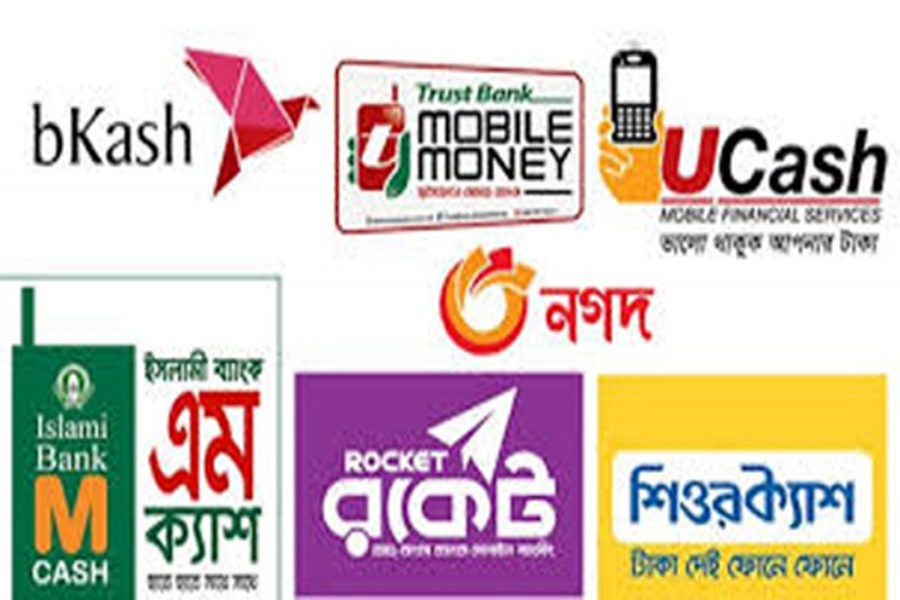It is now an undeniable fact that remittances from Bangladeshi expatriates weigh heavily in ensuring socio economic development of the country. Remittances from the country's expatriates during ten months from July last year crossed a landmark US$ 20 billion and that stirred a great feeling of joy and reassurance amongst all, particularly when the mood everywhere is predominated by the reign of panic and despair due to the Covid-19 pandemic.
Interestingly, the curve on the graph of remittance inflow has been in upswing mode during the last couple of years. Remittance inflow figure, in fact, has superseded the export earnings from readymade garments sector and much higher than the inflow of foreign direct investment (FDI).
Despite the pandemic impacts, remittances from expatriates kept rolling in fast track. To take into account the remittance inflow during three months in early this year, it was $1910 million in March which rose to $2067 million in April and $2171 million in the month of May. Of course, there was the festival of Eid-ul-Fitr during this period and traditionally expatriates send significant amount of money to their near and dear ones on this occasion. Also, many migrants lost their jobs due to closure of projects and operations. This unwarranted situation forced the migrants to return home and thus bring back all their savings.
Another strong reason for the increase in remittance inflow was the stoppage of travel due to the pandemic. Many expatriates used to physically come home to observe the festival with their families and bring home their accumulated money. However, a bigger factor was the absence of hundi traders or illegal cross border transaction makers. Their activities came to a standstill letting the expatriates with no other option but to transfer the money through banking channels.
The biggest booster for the increase in remittances has been the facilities made available for the expatriates to send money home. Though remittances were earlier routed through banks, the process was cumbersome and not very convenient for the recipients or beneficiaries. However, when the central bank allowed the mobile financial services (MFS) sector to process remittances it immediately changed the scenario. Bangladeshi expatriates felt great relief when they found that MFS providers would extend the last mile solution, i.e., ensuring their hard earned money reach the beneficiaries. On his or her part as well, comfort came as he or she would not have to spoil work time or travel to another place to complete the remittance formalities through agents or money transfer agents or banks. He or she could now do it instantly through using the mobile phones and applicable apps.
bkash, being the market leader of the MFS sector and having the widest network across the country, seized the opportunity to prove itself as the miles end facilitator. Starting the remittance facilitation operations in 2018 it helped channel about Tk 1.34 billion. This figure changed to Tk 11.60 billion in 2020 which obviously speaks of the growing trust and trend of the expatriates on the MFS facilitations.
While bKash and other MFS providers have brought ease, the volume of remittance during the pandemic period has multiplied manifold because of the offer of one per cent bonus along with the two per cent incentive from the government. What steams more attractions for the expatriates is that the beneficiaries can transmit the remitted or received amount for many other services like payment of utility bills, fees, recharge mobile and so forth. All these could be done using their MFS account.
With the Bangladesh Bank now enabling the MFS providers to facilitate inward remittances for the free lancers in IT sector, it is sure to strengthen the scenario further. Earlier, the free lance IT professionals and those engaged in software developments used to get their honorariums or compensations only through the banks. Now that the MFS providers have been included in the list, the beneficiaries are much relieved as they would receive their money at their doorsteps.
While things look sunny in the domain of national exchequer bolstered by year on year increase in remittances, challenges remain alive with different potentials of risk. The Bangladesh Bank, being the guardian of all banking transactions in the country should continue framing appropriate regulatory provisions and strengthen is grip of control. The government needs to encourage the banks and MFS providers with incentives like tax rebate to boost the efforts of facilitating remittances. This would greatly check the illegal practices of the hundi traders. Above all, since mobile remittance transactions are on a big stride, the government should encourage availability of smart phones at affordable prices so that the insolvent segment of the society can benefit.
By all means, the value of Taka needs to be kept strong. This would attract or boost remittances further. Added to this, there should be efforts to hit at the lack of literacy and numeracy, particularly among the womenfolk. Such lacks have discouraging impacts to create fear in accessing mobile phone services and more particularly MFS.
In the Philippines, there has been a remarkable success in educating the poor people and women in particular about the uses and benefits of MFS. Today, Filipina women have enough empowerment being able to access financial technology. This has helped the country enjoy a sustainable growth in economy over the years.
In all candor, mobile financial technology stands out to be a prominent actor in redefining the modus operandi of socio economic development. Quite naturally it would have fierce competition from the banking circles. However, as MFS is a blend of financial services and modern technology, this would have convincing endorsement from the people in all societies. In this age of digital transformation and dependence, MFS can surely play a domineering role. In the domain of remittance or any transaction, the benchmark will fairness, fastness and security of the money put in motion.


